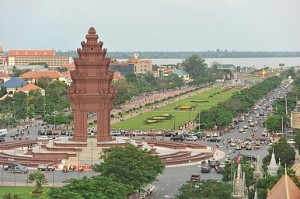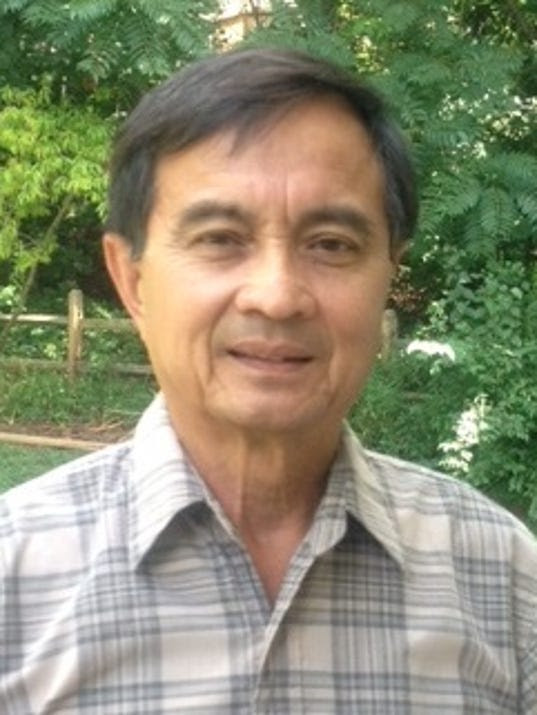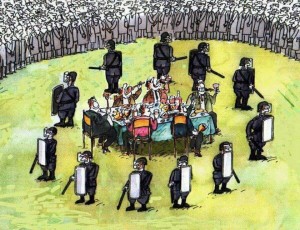Cambodia Leadership: a slide presentation by Therith from Build University.
Author Archives: Cambodian
January 7 is analysed as dividing day for Cambodia political leadership
Political Paradigm of Pragmatism from the Khmer Youth part 49

This part (49), Mr. Sophan Seng analysed the celebration of “January 7, 1979” in which Cambodia’s People Party (CPP) under PM Hun Sen’s leadership has always celebrated this day as liberation day. At all times, the party’s policy has condemned Khmer Rouge regime by valuing the invading day of Vietnam.
According to his view, many analysts have viewed this day as a “dividing day” for Cambodia politics. To prove its dividing synthesis, two factors are articulated:
-
From the period of Angkor’s decline, Cambodia political leadership has been so divisive among Khmer leaders. Each side has always asked for aids from Siam and Dai Viet to support their causes to advance for personal powers and interests. Thus, the compensation was huge. Sometime, each side compensated national treasure, some time each side compensate land. As a witness, Cambodia land has been in a significant shrink.
-
External political changes especially the aura of the cold war that each powerful countries took small countries as their hostage for negotiation. Cambodia was one of those states being brutalized.
Chuon Nath’s vision of the Khmers

Peang-Meth(Photo: PDN file)
Watching the snow piles that line streets and parking lots here, refusing to melt in the cold winter sunshine, my thoughts wander to Ypao Beach where more than a decade ago I swam, watching the coconut leaves dancing against the backdrop of a blue sky, and to decades earlier when I sat on the floor with my father to hear the Buddhist sermon broadcast on state radio.
Now in my seventies, I still hear the Buddhist preaching, “There has to be evil so that good can prove its purity above it.”
In this world of blame and denial, I am more than ever attracted to the words of French Renaissance statesman Michel de Montaigne: “There is no man so good that if he placed all his actions and thought under the scrutiny of the laws, he would not deserve hanging ten times in his life.” And to the words of one of my favorite American presidents, Theodore Roosevelt: “There is not one among us in whom a devil does not dwell; at some time, on some point, that devil masters each of us. … It is not having been in the Dark House, but having left it, that counts.” Roosevelt counseled, “Do what you can, with what you have, where you are.”
————–
PACIFIC DAILY NEWS
Be thoughtful and imaginative
The son of Khmer farmers in Kampong Speu, Chuon Nath grew up to become a Buddhist monk, an author, a composer, a poet and the head of a Khmer Buddhist reformist movement, the Dhammayuttika Nikaya, a model of Buddhism that relies on reason and intellectual conception as valid bases for action and belief. This “rationalist-scholastic model” influenced young Khmer monks in the early 20th century during France’s colonial rule in Cambodia.
Revered as “probably the most famous and most knowledgeable monk Cambodia had ever had,” Chuon Nath became an ardent protector of the Khmer identity, culture and history, and a conservator of the Khmer language. In 1948, at age 65, he was elevated to be the kingdom’s supreme patriarch of the Maha Nikaya with the title Samdech Preah Moha Sumetheathippadei (“wise lord”) Chota’nhea’nor Chuon Nath, a de facto leader of Khmer Buddhism.
A “master of Khmer literature,” Chuon Nath’s innovations included printed sacred texts (replacing hand-inscribed palm-leaf writings), the translation of Buddhist Pali canon into the Khmer language, the introduction of Khmer Buddhist monks to higher learning in Pali and Sanskrit studies, the modernization of Buddhist teaching methods. In 1915 (at age 32) Chuon Nath became a member of the committee by the Kingdom’s royal order to compile a Khmer dictionary.
The tactic of creating events to control events of Cambodia political leadership part 48
 This part (48), Mr. Sophan Seng analysed the old political tactic of “creating events aiming to control events”. This tactics have been used a lot among those states with weak laws enforcement. When court is not reliable, the powerful can utilize all means to strengthen and prolong their power.
This part (48), Mr. Sophan Seng analysed the old political tactic of “creating events aiming to control events”. This tactics have been used a lot among those states with weak laws enforcement. When court is not reliable, the powerful can utilize all means to strengthen and prolong their power.
The strategy of “divide and conquer” has been also well-known among those week law enforcement state.
